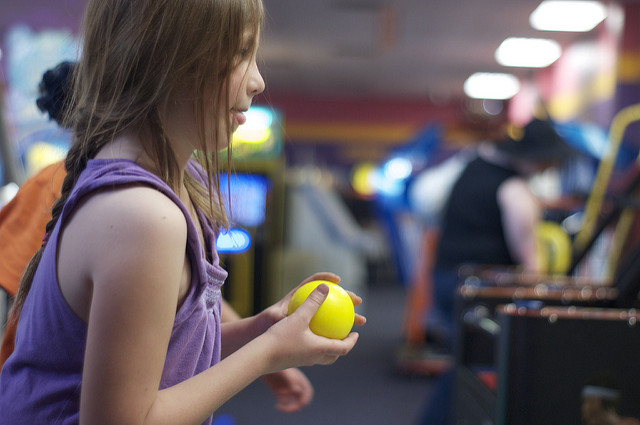Kids with slow processing speed and executive functioning difficulties are often characterized as lazy or unmotivated, but they are not! They may be frustrated, resigned to failure, or overwhelmed, but they are not lazy! Unfortunately, being chronically misunderstood can lead kids with slow processing speed to lose motivation. It is crucial that parents and teachers seek to reverse negative stereotypes and use positive reinforcement, as many of these kids have low self-esteem.
Twenty-first century parents and teachers have high expectations of kids. Students are expected to learn and complete tasks at a rapid pace, but those with slow processing speed often appear to be procrastinating or not trying hard enough. This view is reinforced by the fact that these kids are sometimes able to be punctual or complete school work quickly, particularly if they have a friend waiting for them or an activity that they want to do. Interest, desire, effort, and caring are the core ingredients for task completion–this is true for anyone.
Some older kids with slow processing speed become discouraged and worn out by their lack of success, but more often the struggles of these kids stem from skills rather than motivation. Given their history of frustration in trying to keep up with the pace and complexity of their world, kids with slow processing speed are more apt to give up quickly and feel overwhelmed by even simple tasks and easily distracted when something doesn’t proceed as expected.
There are many approaches that can directly help kids improve executive functions and processing speed. Motivating these kids to improve their skills can be more difficult, but when a parent or teacher starts with understanding and collaboration, it is possible to successfully motivate kids with slow processing speed and executive-functioning difficulties.
Strategies for Motivating Kids with Slow Processing Speed and Executive-Functioning Difficulties
Spread the word about slow processing speed. Parents should talk to teachers, coaches, and other adults who work with their child so that there is an understanding of the impact of slow processing speed on the child’s performance. Creating expectations that children can reach will improve motivation to work hard.
Develop a growth mindset that encourages effort. Carol Dweck, Ph.D. describes a growth mindset as a belief that abilities can be developed through dedication and hard work. Brains and talent are just the starting point. This does not mean that privileges and advantages don’t factor, it simply means that anyone can make some strides toward success when they put their mind to it and they have the right support.
Show appreciation for effort and interests in and out of school. This can help children to internalize motivation across many other areas of their lives. Talk about what engages your child’s attention and how they display self-motivation in learning about hobbies. Your engagement may even foster and encourage your child to work harder.
Gamify. It’s easier to be motivated when something is fun. Parents and teachers who understand how slow processing speed and weak executive functions make life more difficult can try to make home and school demands more fun. Make a competition of out of who can complete a chore first at home. Use topics a student is into to make writing and math assignments more engaging. Learn more about gamification here.
Give context. Explain your rationale for doing something hard before the work starts. It’s not always easy for adults to motivate themselves while embarking on a difficult task, even when we know why we are doing it. Understanding why they are doing something can help kids with processing speed and executive-functioning issues who routinely struggle to complete tasks. Consider changing your expectations when there is not a particularly good reason for engaging in a difficult task or talk to your child’s teacher about how this type of assignment may negatively impact your child’s motivation at school.
Model persistence and grit. This goes hand-in-hand with the growth mindset. Grit is described as a passion for a goal accompanied by the motivation to achieve it as a powerful force for improvement. Some research suggests that grit is a personality trait that can be learned. Grit helps individuals to overcome hardships such as those experienced by kids with slow processing speed and executive-functioning difficulties
Set your own goals. As a model, it’s important to show your kids how to improve on something that is difficult for you. Take on a goal to improve your skills. Announce to your family that you are going to get better at something — exercising regularly, cooking, painting, playing an instrument, or fixing things around the house. Having an audience may help you stick to your goals and will model effort and motivation for your child. An app like SuperBetter can assist with this on an individual level.
Use competition to motivate and identify effort. One important reason to get better at something is to win or beat a fellow competitor. Set up short-term competitions where the percentage of growth or improvement is more important than the absolute level of performance and that all family members could win. For example, assess the winner of an exercise completion not by the number of steps that individuals have done but by who had the highest percentage of improvement over the previous week. Try an app like HabitRPG to help.
Featured image courtesy Flickr user Ryan Basilio




